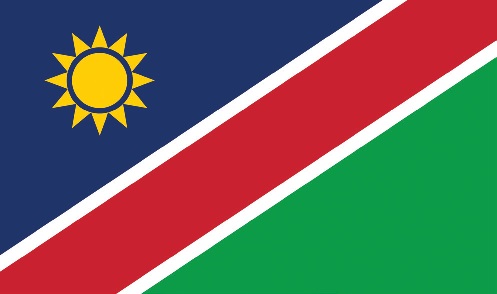Update Report on Gaming Legislation in Taiwan, Namibia, Tanzania and Uzbekistan
Gambling Legislation Update for Taiwan, Namibia, Tanzania and Uzbekistan

Taiwan
The legal treatment of gambling in Taiwan remains unchanged since its declaration as illegal in 1935 under the country’s criminal code.
Under the respective act, any form of games of chance except the lottery (run by the state itself) is not permitted. The lottery was legalized in 1951, not defined as a game of chance. Most recently, limited sports betting under the auspices of the state lottery has been permitted. Thus, both land-based and online gambling are not permitted in the the country, with sanctions for both the participants and the organizers.
The most recent legislative activity occurred in 2019, when the criminal code was amended in order to explicitly encompass online gambling under the existing prohibition on games of chance. There were also some activities with respect to potential legalization of land-based casinos in country’s offshore territories, but without progress to date.

Uzbekistan
All forms of games of chance are illegal in Uzbekistan (a majority of the 35.5 million population is Muslim) since 1991 and the establishment of the country after the breakdown of the USSR, where games of chance were also outlawed at the time. The lottery was legalized in 2002, and the government authorized the National Bank of Uzbekistan to organize and conduct lotteries. As for the regional draws, they are conducted by specialized entities. All entities organizing lottery games are state-owned and as such hold a monopoly in each respective region.
After the new president took the office in 2021, the Uzbek authorities considered steps towards the legalization of sports betting and forming a legal betting area with shopping centers and tourist resorts. However, more recent information from the country states that the government took a step back in this process after consultation with local religious leaders and due to a lack of popular support. It was also noted that the Uzbek government intends to take active measures against unlicensed gambling operators.

Notwithstanding this, players are currently not prosecuted for playing on international (unlicensed) gambling websites.

Tanzania
Gambling has been legal in Tanzania since 1967. However, modern gambling was launched legally in Tanzania with the enactment of the Investment Promotion & Protection Act in 1992 and the Tanzania Investment Act in 1997. Currently, the main legislative act regulating games of chance in the country is the Gaming Act of Tanzania from 2003, as amended. Under this Gaming Act, a new and competent authority for licensing and supervision, the Gaming Board, was established. The Gaming Board is the sole authority for licensing in the country and may issue up to 18 licenses for various types of games-of-chance operators (e.g., casino, slot machines, sports betting and lottery operators).
Bearing in mind the size of the country (a population of approximately 62 million) and the fact that the Internet penetration rate was below 20 percent in 2014 (now rapidly increasing and as of 2022 over 50 percent) it is interesting to note that the first online gambling license was issued only in 2013, since this channel was not seen as feasible until 10 years ago. At the same time, an increasing number of Internet users makes the future for online operators quite bright.

In 2021, the Gaming Board of Tanzania released a draft code of conduct for gambling advertising and responsible gambling in the country, which aims to protect vulnerable groups. This draft shall apply to all licensed operators in the country and envisions, among other things, an advertising blackout between 6 a.m. and 9 p.m., with the exception of specialized sport channels.

Namibia
Gambling has been legal in Namibia since the 1960s. The current main piece of Namibian gambling legislation is the Gaming & Entertainment Control Act no. 13, enacted in 2018.
The competent authority for the licensing and supervisory activities is the Gaming Control Division within the Ministry of Environment, Forestry & Tourism (MEFT). The legal age for being able to participate in games of chance in the country is 21 years.
Since all forms of games of chance are legal in the country, there are currently six licensed, land-based casinos and several betting shops in the country. Organization of lottery games is a monopoly operated by the Namibia National Lottery, established only in 2022. As a curiosity with regard to the licensing system in Namibia, the Moratorium Act no. 28, enacted in 1996, still entails the temporary suspension of granting gambling-house licenses due to the fact that over 200 of these establishments operate in the county.
With regard to online gambling activities, only companies which are in possession of a brick-and-mortar gambling license (or are in partnership with a licensed company) can organize Internet gambling in the country and accept players from Namibia.
Based on publicly available information on the MEFT website, the new Gaming &Entertainment Control Bill has been drafted and is under final scrutiny within the Ministry of Justice, to be discussed in parliament in the near future.
DISCLAIMER: Law Firm Anđelović, Siketić & Tomić d.o.o. wish to avoid inaccuracies and, whilst every precaution has been taken to ensure that information contained in this report is accurate, no liability is accepted for errors or omissions, however caused.
*** This article was originally published in Casino Life Magazine Issue 160 September 2023 ***
Category:
Update Report on Gaming Legislation in Taiwan, Namibia, Tanzania and Uzbekistan was first seen on Casino Life Magazine